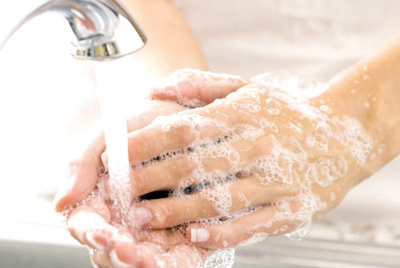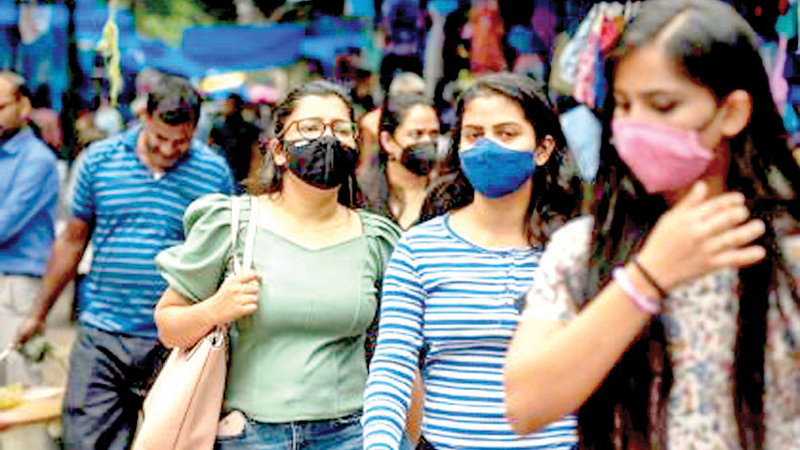Sanitary measures and cleanliness play an important role in sustaining our health and overall well-being. The daily habits of using masks, facial tissues, washing hands, and keeping our homes, offices, and public spaces clean can keep diseases at bay and enhance our mental and physical health. It is always safe to maintain our surroundings clean and follow proper hygiene standards, especially because the Covid-19 pandemic is still ongoing and there is also a risk of contracting other viral infections.
Masks have become an essential part of our daily lives, especially in the wake of the Covid-19 pandemic. Since masks protect us by blocking respiratory droplets that may carry infectious viruses and bacteria, when we wear masks in crowded places or during flu seasons, we reduce the risk of getting and spreading illnesses.
 Masks also help those with allergies or respiratory conditions by filtering out pollutants and allergens from the air. By using masks, we show respect and care for others, especially those who are vulnerable to infections. Today, many people have stopped wearing the mask altogether, but it is advisable to wear the same specially if you are taking public transport or staying longer hours in public places.
Masks also help those with allergies or respiratory conditions by filtering out pollutants and allergens from the air. By using masks, we show respect and care for others, especially those who are vulnerable to infections. Today, many people have stopped wearing the mask altogether, but it is advisable to wear the same specially if you are taking public transport or staying longer hours in public places.
Always make sure that you use either a clean handkerchief or facial tissues.
Facial tissues are small but mighty tools in our fight against germs. When we use tissues to cover our nose and mouth while sneezing or coughing, we prevent the spread of germs to our hands and the environment. This simple act can stop the chain of infection.
Proper disposal of used tissues is vital. We should throw them into a trash bin immediately to avoid contaminating surfaces and other people. Carrying a pack of tissues and using them responsibly helps maintain hygiene in our daily interactions.
Clean hands, a must
Hand hygiene is one of the most effective ways to prevent infections. Our hands touch countless surfaces throughout the day, picking up germs along the way. Regular hand washing with soap and water removes these germs and reduces the chance of getting sick.
Hand sanitisers are a good alternative when soap and water are not available. They are convenient for on-the-go hygiene, especially after touching public surfaces like doorknobs, handrails, and shopping carts. Clean hands prevent the spread of germs to our faces, food, and other people, making it a crucial habit for everyone.
Home cleanliness
Our homes are our sanctuaries, and keeping them clean is vital for our health. Regular cleaning of surfaces, floors, and household items reduces the presence of dust, allergens, and germs. This is especially important in areas like kitchens and bathrooms, where bacteria can thrive.
Using disinfectants on high-touch surfaces, such as countertops, door handles, and light switches, helps prevent the spread of infections. A clean home environment also reduces the risk of pest infestations, which can bring additional health hazards.
Beyond the physical benefits, a clean home contributes to our mental well-being. Clutter and dirt can cause stress and anxiety, while a tidy space promotes relaxation and peace of mind. Maintaining a clean home is a simple yet effective way to support both physical and mental health.
Office cleanliness
We spend a significant portion of our lives in our workplaces, making office cleanliness essential for our well-being. A clean and organised office reduces the spread of germs among employees, leading to fewer sick days and a healthier workforce.
Regular cleaning of shared spaces like break rooms, restrooms, and meeting rooms is crucial. Providing hand sanitisers and disinfectant wipes encourages employees to maintain their personal workspaces. Clean offices also enhance productivity and morale, as employees feel more comfortable and motivated in a tidy environment.
Employers can support cleanliness by implementing policies that promote hygiene, such as encouraging regular hand washing and providing necessary cleaning supplies. A clean office environment benefits everyone, from employees to clients and visitors.
Street cleanliness vital for community health
Clean streets and public spaces are vital for community health and well-being. Litter and debris can attract pests, spread diseases, and create unsanitary conditions. Proper waste disposal and regular street cleaning help maintain a healthy environment for everyone.
Community efforts, such as organised clean-up events and educational campaigns, raise awareness about the importance of keeping public spaces clean. Local governments play a key role by providing adequate waste disposal facilities and maintaining public areas.
Clean streets also enhance the aesthetic appeal of neighbourhoods, fostering a sense of pride and community spirit. When people see their environment well-maintained, they are more likely to take part in keeping it that way.
Mental and physical health benefits
The benefits of cleanliness and sanitary measures extend beyond physical health. A clean environment positively impacts our mental health, reducing stress and promoting a sense of well-being. When our surroundings are orderly and hygienic, we feel more in control and less overwhelmed by chaos.
Engaging in cleaning activities can also be therapeutic. It provides a sense of accomplishment and can serve as a form of physical exercise. Cleaning tasks, such as sweeping, mopping, and scrubbing, get us moving and can help burn calories and improve fitness.
Good hygiene practices, like regular hand washing and using tissues, also build healthy habits and discipline. These habits become second nature over time, contributing to a lifestyle that values health and cleanliness.
Sanitary measures and cleanliness are foundational to a healthy and happy life. From wearing masks and using facial tissues to washing hands and keeping our environments clean, these practices protect us from diseases and enhance our overall well-being. They foster a sense of responsibility and care for ourselves and our communities.
Incorporating these habits into our daily routines helps us lead healthier, more fulfilling lives. By prioritising hygiene and cleanliness, we contribute to a safer and more pleasant world for everyone. Let’s embrace these simple yet powerful practices and commit to a lifestyle that values health, happiness, and cleanliness.
Practical tips for everyday cleanliness
Incorporating cleanliness into our daily routines doesn’t have to be complicated. Here are some practical tips to help you stay on top of hygiene and cleanliness:
1. Wear Masks in Crowded Places: Keep a mask handy and wear it in crowded or enclosed spaces to protect yourself and others.
2. Use Facial Tissues: Always carry a pack of tissues and use them to cover your mouth and nose when sneezing or coughing. Dispose of them properly.
3. Wash Hands Regularly: Wash your hands with soap and water for at least 20 seconds, especially before eating, after using the restroom, and after touching public surfaces.
4. Carry Hand Sanitiser: Use hand sanitiser when soap and water are not available.
5. Clean High-Touch Surfaces: Regularly disinfect high-touch surfaces in your home and office, such as doorknobs, light switches, and countertops.
6. Maintain a Clean Home: Keep your living space clean by regularly vacuuming, dusting, and disinfecting. Declutter to reduce stress and promote relaxation.
7. Encourage Office Cleanliness: If you work in an office, keep your workspace tidy and use provided sanitizers and wipes to clean shared surfaces.
8. Participate in Community Clean-Ups: Join local efforts to keep public spaces clean. Educate others about the importance of proper waste disposal and cleanliness.
By adopting these habits, you can make a significant difference in your health and the health of those around you.









